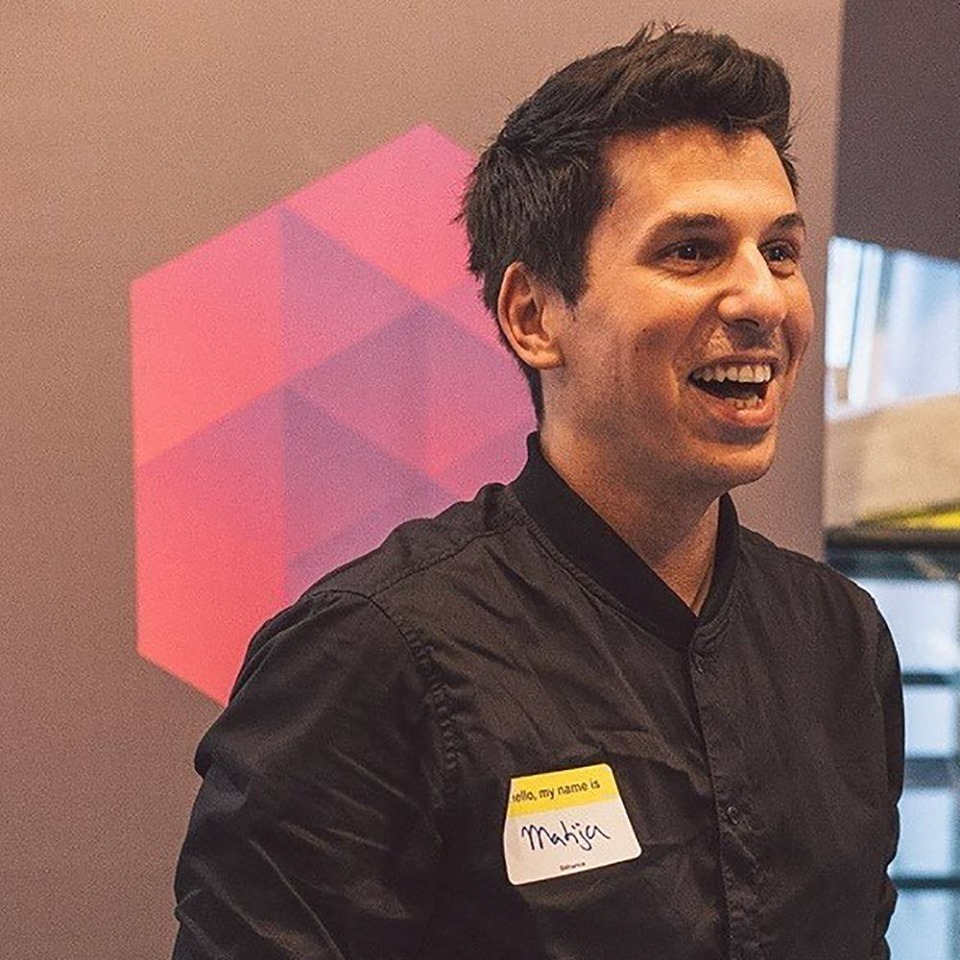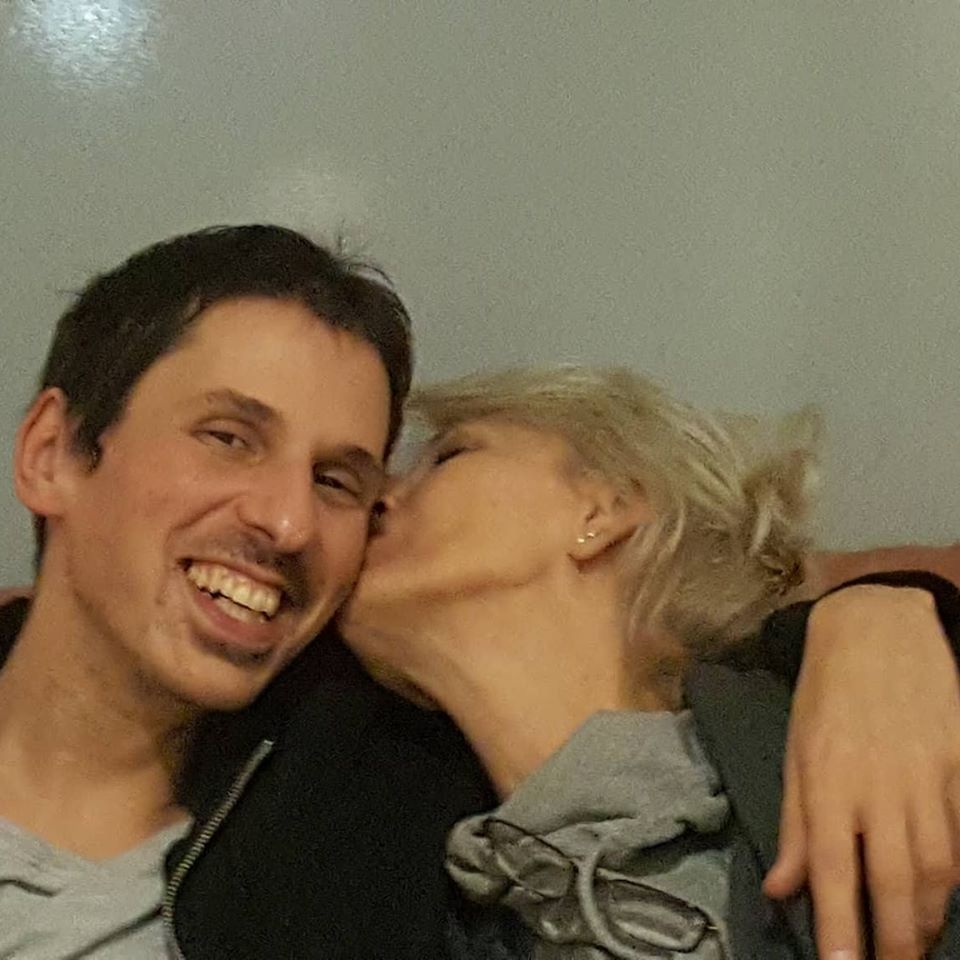Matija, Marija and their Friends

Wait, everybody!
Yesterday I was so wrapped up in what I was writing, focussing on myself and the thoughts I remembered having 19 months ago, that somehow I forgot the most important thing, the first concern for any translator worth his or her salt: the context. In other words, I didn’t talk about Matija Raos, his mother Marija or their friends in Croatia. I can’t understand how I could forget Matija, even for just a few hours, but at least this way I have the chance to write an entire post about him rather than just a few paragraphs. And that’s something he definitely deserves.
I’ve written about Matija before, and I recommend reading this about his work as the president of the Croatian Freelancers Association, but on my blog, where I’m doing my best to explain how I managed to cope with the news of my tumour, there can be no ignoring the role that Matija, Marija and their friends played in my new life as a patient with a serious illness.
The photo I’ve included above leaves no doubt as to how smart, engaging and just plain fun Matija was. He lived life to the fullest and made a real difference in his country, as well as elsewhere, when suddenly, at the age of 33, in March of 2017 (though I may be slightly off with the month), he was diagnosed with a highly aggressive tumour of the colon. At 33! And he was a vegetarian, perfectly fit and trim! He had every reason to shout at the world: “Why me?!”. But what he did was face up to the illness, the treatments, the side-effects of the entire experience, all with an extraordinary inner fortitude.
His mother Marija moved back to Zagreb full-time, so as not to leave him alone an instant, while his friends and colleagues built a marvellous support network around the both of them. They saw that Matija needed help, simply because both he and his mother were freelance professionals, and in Croatia this category of worker has no coverage for serious illnesses. They were in danger of winding up out on the street, having met with financial ruin during their struggle to beat the illness.
Working with Matija, they organised an on-line campaign to help him and his mother make it through the period during which they couldn’t work, while also allowing them to pay for whatever treatments weren’t available free of charge. In just a few weeks’ time, they had collected 25,000 dollars. Everyone wanted to help, including a great many people in Italy, a lot of whom had met Matija in person, while others simply understood the tremendous difficulty of being sick when you don’t live in a country with a system of universal healthcare that provides you with vital treatments at no cost.
Matija underwent months of intensive chemotherapy that left him badly weakened, because he’d been thin to begin with, and for a long time he could only take nourishment through a feeding tube. He recovered some strength and he left the hospital. Finally, he was able to have the operation he needed, but it was long, drawn-out procedure, and many feared that he wouldn’t survive it. But he did. He slowly began to recover. At a certain point, the examinations and controls showed that he was free of the illness. It seemed like a miracle had taken place, like he had beat this thing.
But just a few months later, he had a sudden relapse. Back in the hospital, he was operated on again. When Matija passed away on 26 August 2018, he left everybody stunned.
I first met his mother Marija in Zagreb, in July of 2017. We hugged each other tight, like old acquaintances, exchanging only a few words. Matija was in the hospital, where they had tried to operate, but they were forced to close him right back up again, having found the illness to be too far advanced. Chemotherapy was needed to reduce the mass, and at that moment Matija didn’t feel like seeing anyone. I sent word to him that I would come back to Zagreb as soon as he was better, so that he could show me the city.
When my tumour was diagnosed, Matija had already been in treatment for a number of months. It was hard telling Marija about my own illness, because I knew how much it would hurt her. And as for Matija, I was hoping that she wouldn’t tell him.
Throughout the months of my own chemotherapy, I would think of how thin Matija had become, of how he couldn’t eat, whereas all I had to put up with, at the very worst, was a little nausea and some intestinal problems, but I had more than forty pounds of excess weight to keep me from wasting away. Matija was always smiling, but not with the look of a martyred cancer victim. It was the same smile he had always had. The photographs, reactions and messages that he put on the web in his last years of his life served as an example for everyone, because he simply kept on being the same person he’d always been. And somehow he used his condition to make people think of the problems freelancers face in case of serious illness.
As soon as I had some good news about my condition, l would write about it to Marija, knowing that they would be glad to hear it too. Without realizing as much, I wrote my last e-mail at the very moment that Matija was dying. It was a cheery, upbeat message: the results of my PET scan were good; I was starting a new therapy. I wrote about how I would have to get used to my condition being chronic, I would have to learn to live with the tumour. I even said: “But I’d rather live with a tumour than die from one”. I hope Marija never read that …
All this simply to say that, when you write to tell me that I’m strong, that I’m a brave women, when you keep complimenting me on how well I’m dealing with things, you’ve got the wrong person. I am, and always have been, a very lucky woman. I’ve lived, and am still living, a full, happy, satisfying life, an existence without any especially trying obstacles, difficulties or sacrifices. Even while having to deal with the illness and the treatments, I haven’t run into any enormous problems. Not that I’m ready to die, as shown by the fact that I’m still here, but Matija had his whole life ahead of him, and he was still making a very real difference in the lives of everybody who knew him. As for his mother Marija, who obviously had a lot to do with the very special man that Matija was, she had every right to enjoy having him as her son rather than having to survive him.
A fucking pointless death, pardon the f word. He shouldn’t have died at all but he died with the dignity of the special person he was. From time to time, I go through all his photos on the web. He was always smiling. That’s why I had to include pictures of Matija in thefishpost.it . If I’m able to handle things in a certain way, it’s because of him, and so I want his smile to shine through the entire blog.
